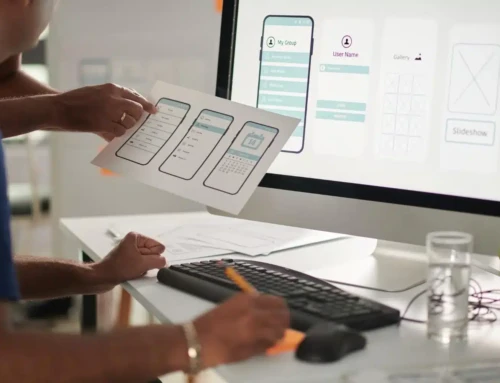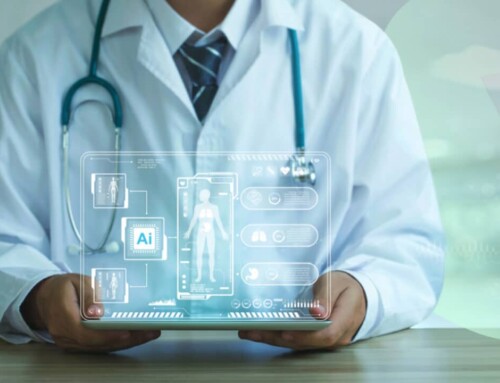The Transformation of Healthcare with Personalized Medicine
In the ever-evolving landscape of healthcare, personalized medicine emerges as a revolutionary approach to patient care. Gone are the days of one-size-fits-all treatments; instead, medical practices are shifting towards individualized solutions tailored to each patient’s unique needs. With the advent of advanced technologies and medical innovations, the concept of personalized medicine is becoming a reality, promising better health outcomes and improved patient experiences.
The Role of Medical Apps in Revolutionizing Patient Care
Central to this transformative shift in healthcare is the increasing prevalence of medical apps. These digital tools have been instrumental in reshaping the way patients access healthcare services and manage their well-being. From mobile health tracking to virtual consultations, medical apps are bridging the gap between healthcare providers and patients, bringing convenience and efficiency to the forefront of modern medical practices.
Embracing Innovation: The Need for Customized Medical Apps
As the demand for personalized medicine grows, so does the significance of customized medical apps. Off-the-shelf solutions may fall short in meeting the unique requirements of healthcare providers and their patients. To truly harness the potential of personalized medicine, a software development firm well-versed in crafting tailor-made medical apps is essential. In this article, we explore the rise of personalized medicine and the indispensable role of custom medical apps in driving innovation and revolutionizing patient-centric care. Let us delve into the world of medical app development and its profound impact on the future of healthcare.
The Emergence of Medical Apps
The Mobile Revolution in Healthcare
The widespread adoption of smartphones has opened up new possibilities for the healthcare industry. Medical apps have emerged as a game-changer, empowering patients with the ability to manage their health on the go. From tracking vital signs to accessing personalized treatment plans, these apps facilitate seamless communication between patients and healthcare providers, fostering a more patient-centric approach to healthcare.
Expanding Reach and Accessibility of Medical Services
Medical apps have dismantled geographical barriers, enabling patients to access medical services irrespective of their location. Telemedicine apps have gained significant popularity, allowing patients to engage in virtual consultations with doctors and specialists. This not only increases accessibility to quality healthcare but also reduces the strain on healthcare facilities and ensures prompt care for patients in need.
Key Features and Functionalities of Medical Apps
Custom medical apps are designed to cater to specific medical specialties and patient needs. They encompass a wide range of functionalities, such as medication reminders, appointment scheduling, health record management, and remote monitoring. These features empower patients to take charge of their health and wellness while enhancing communication and collaboration with healthcare providers.
Customizing Medical Apps for Specific Specialties
Personalized Apps for Chronic Disease Management
Custom medical apps are instrumental in managing chronic conditions effectively. Patients with diabetes, hypertension, or other chronic ailments can benefit from personalized apps that provide timely reminders for medication intake, track vital signs, and offer insights into lifestyle modifications. The apps can also facilitate seamless communication between patients and healthcare professionals, leading to proactive management of chronic diseases.
Specialized Medical Apps for Pediatrics and Geriatrics
Medical app development caters to the unique needs of different age groups, particularly children and the elderly. Pediatric apps focus on child-friendly interfaces, age-appropriate health information, and interactive elements to engage young patients in their healthcare journey. On the other hand, geriatric apps consider the challenges faced by older adults, offering features like medication management, fall detection, and virtual support networks to ensure the well-being of this vulnerable population.
Enhancing Remote Patient Monitoring with Custom Solutions
Remote patient monitoring has emerged as a crucial aspect of modern healthcare, especially during the pandemic. Custom medical apps equipped with remote monitoring capabilities allow healthcare providers to track patients’ health in real-time, even from a distance. By collecting and analyzing health data through wearables and IoT devices, these apps empower healthcare professionals to intervene proactively, reducing hospitalizations and enhancing patient outcomes.
The rise of personalized medicine and the proliferation of custom medical apps signify a paradigm shift in healthcare. As patients take more control of their health journey, and healthcare providers leverage technology for better patient care, the future of personalized medicine appears brighter than ever. In the next sections, we delve deeper into the role of data analytics and AI in medical apps, the significance of data security and user experience, and the regulatory landscape that governs this dynamic industry. Stay tuned for more insights into the transformative world of medical app development.
The Impact of Data Analytics and AI in Medical Apps
Leveraging Data Insights for Personalized Treatment Plans
Data analytics plays a pivotal role in unlocking the full potential of personalized medicine. Custom medical apps gather vast amounts of patient data, ranging from medical history to lifestyle habits. Leveraging advanced data analytics, healthcare providers can derive meaningful insights from this data, leading to more accurate diagnoses and personalized treatment plans. Predictive analytics can also help anticipate potential health risks, enabling proactive interventions to prevent the onset of diseases.
AI-driven Medical Apps for Early Diagnosis and Intervention
Artificial Intelligence (AI) has revolutionized medical app development, driving innovation in early diagnosis and intervention. AI-powered algorithms can analyze medical images, detect anomalies, and aid in the early detection of diseases such as cancer and retinal disorders. Machine learning models continuously improve with data, leading to more accurate predictions and personalized recommendations for patients. As AI applications in healthcare expand, medical apps are becoming indispensable tools in providing timely and life-saving interventions.
Improving Predictive Analysis and Proactive Patient Care
Medical apps equipped with predictive analysis capabilities empower healthcare providers to offer proactive patient care. By monitoring a patient’s health data in real-time, medical apps can identify patterns and trends that might indicate potential health issues. This enables healthcare professionals to intervene early, preventing complications and hospital admissions. Custom medical apps are at the forefront of harnessing data and AI to revolutionize patient care and elevate healthcare outcomes to unprecedented levels.
Ensuring Data Security and Privacy in Medical Apps
Addressing Concerns and Compliance in Healthcare IT
With the sensitive nature of patient data, data security and privacy are paramount in medical app development. Custom software development firms prioritize stringent security measures to protect patient information from unauthorized access, data breaches, and cyber threats. Compliance with industry standards and regulations, such as HIPAA, ensures that medical apps adhere to the highest security protocols and provide a safe environment for patients and healthcare professionals.
Building Secure Medical Apps to Safeguard Patient Information
Custom medical apps are designed with a focus on data encryption, secure user authentication, and secure data transmission. These measures guarantee that sensitive medical records and personal information remain confidential, instilling trust among patients and healthcare providers. Implementing multi-layer security protocols bolsters the defense against potential cyberattacks, making medical apps a reliable platform for seamless and secure healthcare interactions.
Emphasizing HIPAA Compliance and Data Encryption
As the cornerstone of healthcare data protection, adhering to HIPAA compliance is non-negotiable for custom medical app developers. Implementing robust data encryption and access control measures ensures that patient data is safeguarded from unauthorized disclosure. By aligning with HIPAA guidelines, medical apps become a trusted partner in healthcare, earning the confidence of patients and healthcare organizations alike.
In the subsequent sections, we explore the integration of wearables and IoT devices into medical apps, the significance of user experience and accessibility, and the regulatory landscape that governs this dynamic industry. The seamless fusion of technology and personalized medicine continues to redefine the future of healthcare, and medical app development remains a driving force behind this transformative journey. Stay tuned for more insights into the world of custom medical apps and their profound impact on healthcare innovation.
Integrating Wearables and IoT Devices for Holistic Healthcare
The Role of Wearable Technology in Medical Apps
Wearable devices, such as fitness trackers and smartwatches, have gained immense popularity among consumers. Custom medical apps can seamlessly integrate with these wearables, enabling continuous monitoring of vital signs, physical activity, and sleep patterns. This real-time data provides healthcare providers with a comprehensive view of patients’ health, facilitating informed medical decisions and personalized care plans.
IoT Devices for Remote Monitoring and Home Healthcare
Internet of Things (IoT) devices have extended the reach of medical apps beyond traditional healthcare settings. IoT-enabled medical devices, such as smart scales and blood glucose monitors, empower patients to manage their health from the comfort of their homes. By connecting these devices to medical apps, patients can securely transmit data to healthcare providers, ensuring timely intervention and ongoing support for chronic disease management.
Advancing Telemedicine with Wearables and IoT
Custom medical apps equipped with wearables and IoT integration enhance the telemedicine experience for both patients and healthcare professionals. Virtual consultations are enriched with real-time health data, enabling doctors to make accurate assessments and tailor treatment plans accordingly. Telemedicine’s convenience, combined with wearable and IoT data, has transformed healthcare delivery, making it more patient-centric and accessible.
Fostering Exceptional User Experience and Accessibility
Designing Intuitive Interfaces for Seamless Navigation
In the world of medical apps, user experience is of paramount importance. Custom software development firms prioritize designing intuitive interfaces that facilitate easy navigation and quick access to critical features. An aesthetically pleasing and user-friendly app fosters engagement, encourages regular usage, and promotes active participation in managing one’s health.
Accessibility for All: Inclusive Medical App Design
Medical apps should cater to users of all abilities and demographics. Inclusive design principles ensure that individuals with disabilities can access and utilize the app effectively. From providing alternative text for visual content to offering voice navigation options, custom medical apps embrace diversity, making healthcare services accessible to everyone.
Seamlessly Multilingual: Breaking Language Barriers
In an increasingly globalized world, multilingual capabilities are indispensable for medical apps. Custom development allows for seamless integration of multiple languages, breaking language barriers and accommodating diverse patient populations. By offering medical app services in different languages, healthcare providers can enhance communication and understanding, ultimately improving patient outcomes.
The evolution of personalized medicine and the rising prominence of custom medical apps are steering the healthcare industry towards a future where patient care is truly individualized and data-driven. As we explore the significance of regulatory compliance and the evolving healthcare landscape in the subsequent sections, it becomes evident that custom medical apps are at the forefront of innovation, driving positive transformations in patient care.
For those seeking to embrace the power of custom medical apps, Seattle Software Developers stands ready to bring their vision to life and redefine the future of healthcare through cutting-edge technology and personalized solutions.





